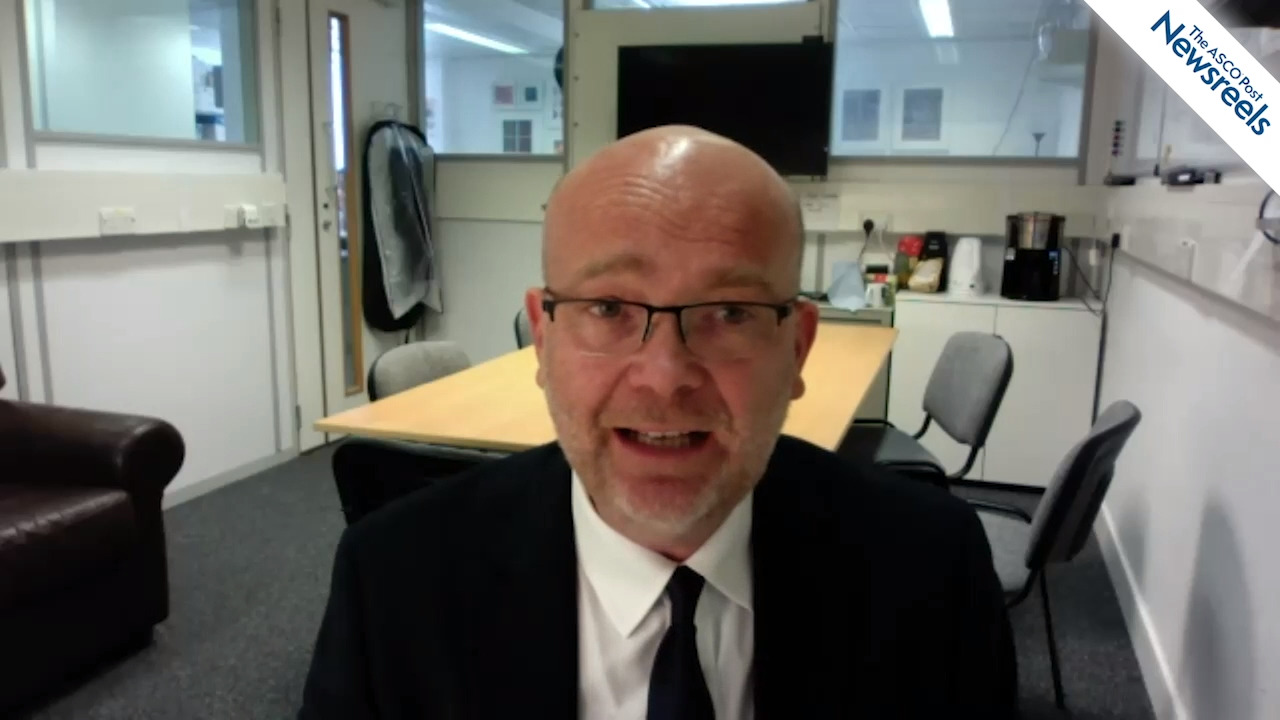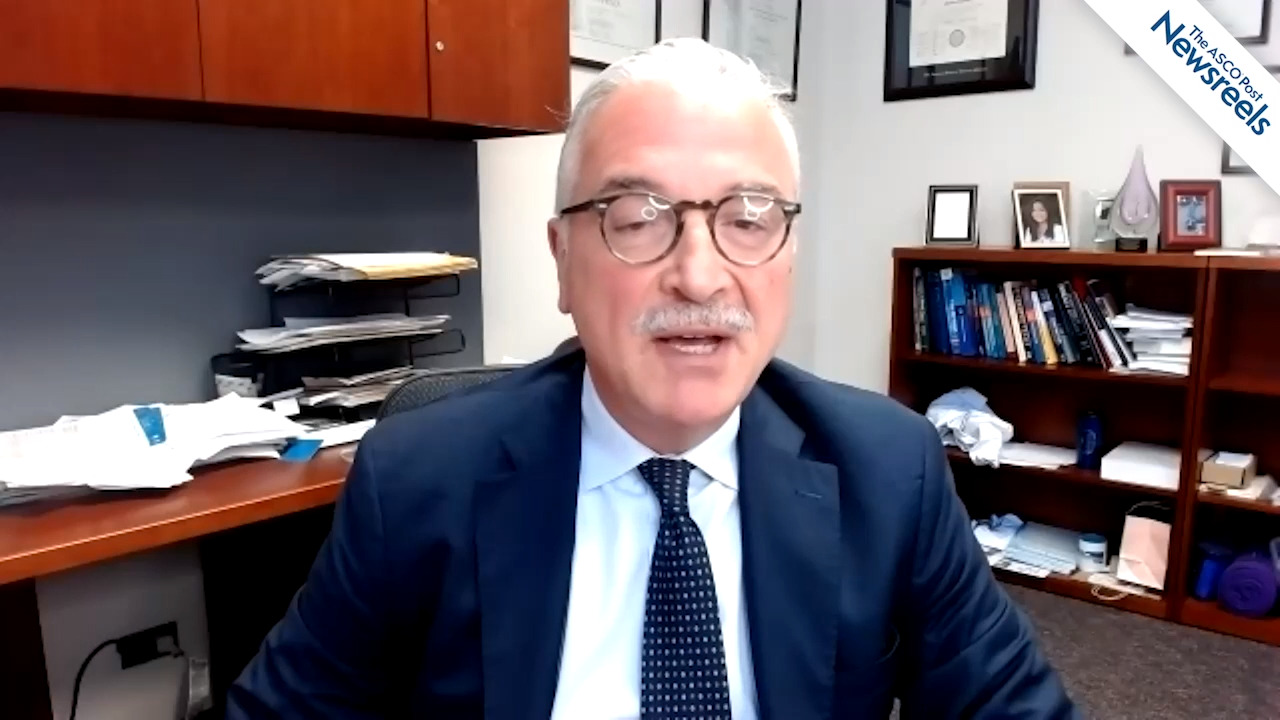Terry P. Mamounas, MD, MPH, on Breast Cancer: Extended Aromatase Inhibitor Therapy
2021 ASCO Annual Meeting
Terry P. Mamounas, MD, MPH, of the University of Florida Health Cancer Center, discusses results from the NRG Oncology/NSABP B-42 study, which examined the Breast Cancer Index and its ability to predict whether extended treatment with letrozole benefits patients with hormone receptor–positive breast cancer (Abstract 501).
The ASCO Post Staff
Nicholas J. Short, MD, of The University of Texas MD Anderson Cancer Center, discusses early results from a phase II study which showed that combining ponatinib and blinatumomab in patients with Philadelphia chromosome–positive acute lymphoblastic leukemia may prove to be an effective chemotherapy-free regimen that might reduce the need for allogeneic hematopoietic stem cell transplant (Abstract 7001).
The ASCO Post Staff
Jingxuan Zhao, MPH, of the American Cancer Society, discusses study findings that showed worse long-term survival among low-income patients with cancer who live in states that have not expanded Medicaid eligibility (Abstract 6512).
The ASCO Post Staff
Neeraj Agarwal, MD, of Huntsman Cancer Institute at the University of Utah, discusses phase III data from the SWOG S1216 trial, which evaluated the clinical benefit of using androgen-deprivation therapy with either orteronel (or TAK-700, a CYP17 inhibitor) or bicalutamide in patients with newly diagnosed metastatic hormone-sensitive prostate cancer (Abstract 5001).
The ASCO Post Staff
Andrew Tutt, PhD, MBChB, of the Institute of Cancer Research, London, discusses findings from the phase III OlympiA trial, which showed that adjuvant olaparib, a PARP inhibitor, following adjuvant or neoadjuvant chemotherapy, may improve invasive disease–free survival in patients with germline BRCA-mutated and high-risk HER2-negative early breast cancer, which might lead to a new indication in this setting (Abstract LBA1).
The ASCO Post Staff
Massimo Cristofanilli, MD, of the Feinberg School of Medicine at Northwestern University, discusses updated overall survival data from the phase III PALOMA-3 trial of palbociclib plus fulvestrant in women with hormone receptor–positive, HER2-negative advanced breast cancer (Abstract 1000).





